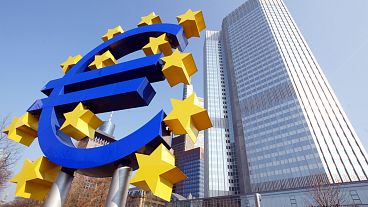Major global stock markets head for a negative close for the week as blue chips fell amid sector rotations, while the semiconductor stocks were hit by expectations of the US renewed chip export curbs on China.
Stock markets across the globe are likely to end the week in the red due to a sharp retreat in the big-cap technology shares, particularly the AI chip-maker stocks. Sector rotation may have also contributed to the decline as funds were seen to switch from blue chips to small caps. On the other hand, the Chinese mainland stocks experienced a bullish momentum amid the critical Third Plenum meeting, as more stimulus policies are expected.
Europe
A sharp decline in European big-cap stocks dragged down overall performance this week. On a weekly basis, the Euro Stoxx 600 fell by 1.03%, the CAC 40 slid by 1.78%, the DAX slipped by 2.10%, and the FTSE 100 was down 0.58%.
Major technology stocks in the region experienced intense selloffs, with shares of the Dutch semiconductor equipment manufacturer, ASML, shedding 14.25%, and SAP falling 3.07% over the past five trading days. The sharp decline in ASML's shares was primarily hit by news that the Biden administration may impose tougher chip export restrictions on China, targeting foreign companies like ASML which continued to see strong sales momentum in the country. Despite stronger-than-expected second-quarter earnings results, the stricter export curbs cloud the firm’s outlook. The global downtrend in this sector has also added pressure on the chip machinery firm.
Additionally, shares of Novo Nordisk, the largest European company, slumped by more than 9% from last week due to competition concerns. The Swiss pharmaceutical giant, Roche Holding, announced its experimental daily weight-loss pill showed positive results, posing a significant threat to Novo Nordisk, whose Wegovy requires injection rather than oral administration. Shares of US rival Eli Lilly also fell on the news. Meanwhile, Roche shares soared 10.74% during the past five trading days.
Big luxury consumer stocks also saw a weekly decline, with LVMH down 2.13%, Hermes falling 1.67%, and Christian Dior sliding 2.40% ahead of their earnings reports next week. In contrast, the British stock markets were more resilient, buoyed by energy firms, with BP up 1.37% and Shell rising 0.69% from last week.
Both the euro and the British Pound remained flat against the US dollar after a sharp retreat on Thursday, erasing most gains made earlier in the week. The European Central Bank (ECB) kept benchmark interest rates unchanged as widely expected but indicated "wide open" stance to the September meeting.
Wall Street
The sharp retreat in major technology stocks extended for the second week as sector rotations continued switching funds from AI-related stocks to small caps. Over the past five trading days, the Dow Jones Industrial Average was up 1.66%, the S&P 500 fell 1.26%, the Nasdaq composite slid 2.87%, and the small-cap benchmark, the Russell 2000, rose 2.26% on a weekly performance.
At the sector level, four out of 11 sectors fell from a week ago, with the technology sector leading losses, down by 3.26% over the past five trading days. The energy and financial sectors were the biggest outperformers, up by 3.01% and 2.49% respectively, thanks to solid oil prices and strong earnings from big banks.
Most of the Magnificent Seven stocks extended losses ahead of major earnings next week, with Microsoft down 3.15%, Nvidia sliding 4.95%, Amazon falling 5.79%, Alphabet slumping 4.31%, and Apple down 1.49% on a weekly basis. Tesla was the only major tech stock higher for the week, up 3.40% over a five-day trading period.
Netflix reported positive second-quarter earnings, but its shares were down 1.45% from last week due to slightly weaker-than-expected guidance. The streamer added eight million new subscribers in the quarter, topping the expected 4.8 million.
Asia Pacific
Most stock markets across the Asia Pacific are heading for a negative close for the week due to the tech jitters. The Japanese benchmark, the Nikkei 225, fell more than 2% for the week as the Japanese Yen strengthened significantly against other major currencies on bets that the Bank of Japan may intervene in the exchange rate. The yen surged to as high as 155.36 yen per US dollar from the 38-year high of 161.71 last week.
In comparison, the Australian stock markets posted a much stronger performance, with the ASX 200 reaching a new high of above 8,000 before pulling back. The banking sector continued to gain momentum, mirroring the global trend, while the mining stocks were the biggest laggards, with BHP down 2.99% and Rio Tinto sliding 4.89% from a week earlier.
Chinese markets were mixed as the Hang Seng Index slumped more than 4% in one week, while the mainland exchanges posted weekly gains, with the Shanghai index up 0.19%. China reported much weaker than expected GDP growth for the second quarter, which pressured the market sentiment. However, the data fuelled optimism for more stimulus measures by the Chinese government to bolster the economy.















